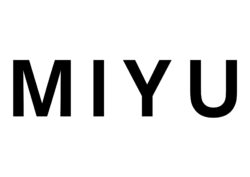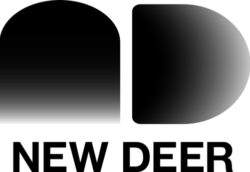A Miyu Productions, National Film Board of Canada & New Deer co–production with the support of CNC & the Ciclic Animation Residency
Directed by Japanese filmmaker Ryo Orikasa, the animated short Miserable Miracle was inspired by Henri Michaux’s book of poetry and drawings of the same name. Masterful in both vision and execution, the film explores the limits of language and perception, creating dazzling connections between sound, meaning, shapes and movement. Propelling viewers beyond the page, guided by Tony Robinow’s feverish voiceover, the poems map the human psyche to the very edges of alienation and transcendence.
Directed by Japanese filmmaker Ryo Orikasa, the animated short Miserable Miracle was inspired by Henri Michaux’s book of poetry and drawings of the same name, about his experiences with mescaline. The film explores the limits of language and perception, creating connections between sound, meaning, shapes and movement.
#1
Bringing the poems and drawings of Henri Michaux to vivid life, Miserable Miracle propels us beyond the page and into a feverish world that exists at the boundaries of language and perception.
#2
Inspired by the poems and drawings of Henri Michaux, Miserable Miracle takes animation to the breathtaking limits of language and perception.
#3
Inspired by Henri Michaux’s poems and drawings about his experiences with mescaline, Miserable Miracle explores the limits of language and perception, creating connections between sound, meaning, shapes and movement.
Ryo Orikasa on Miserable Miracle
It seems quite natural to me that my work, which has revolved around the relationship between words and images, crossed paths with the work of poet, writer and painter Henri Michaux. For more than a decade, I had been thinking about adapting his remarkable literary work into a film, but two reasons stand out for why I began production on my animated short in 2018.
The first reason is that I discovered Michaux was interested in cinema. The research I conduct before embarking on any film project is an integral part of the process. As I read about Michaux, I came to understand his desires and practices in regard to film. In Emergences-Résurgences (1972), he envisioned a cinema endowed with movement inspired by his own writing, and in Misérable miracle (1956), he describes the images he encountered during a mescaline-induced hallucination as “ridiculous film.” Although it seems he did not achieve satisfactory results, learning about his filmmaking projects, such as Images d’un monde visionnaire (1964), a collaboration with director Éric Duvivier, heightened my desire to adapt his writings into animation.
The second factor motivating this project is more personal. I had been feeling powerless and constrained by the need to use “correct” words—I refer to words that follow grammatical rules and serve as tools for communication—particularly after 2011 and the Fukushima accident. I’d also been having trouble with ordered, structured sentences. This feeling of powerlessness was not depressing; rather, it contained a sense of the absurd and the foolish. This pushed me towards the language of poetry. And even though poetry had never occupied my mind previously, one day the words “Je deviens une catastrophe” (“I am becoming a disaster”) emerged. This film may be the result of my attempt to translate that single phrase.
Production, which was a series of new experiences for me, took place in France (Paris, Saumur), Japan (Ibaraki and Tokyo) and Canada (Montreal). Visualizing images guided by actors’ voices was a new experience, and working with a team was a first for me. The collaborative process, which sometimes included as many as 10 people, was extremely complex because there were no cuts separating the images we worked on, which evolved very slowly over time.
This text has been translated from Japanese.
Written and Directed by
Ryo ORIKASA
Freely adapted from
Misérable miracle
by Henri MICHAUX
© Éditions Gallimard, 1972
With the voice of
Tony ROBINOW
Art Direction
Ryo ORIKASA
Freely inspired by Henri MICHAUX’s drawings
Sillon Dessin mescalinien (1956)
in Misérable miracle © Editions Gallimard, 1972
Mouvement, encre de Chine (1950)
in Mouvements © Editions Gallimard, 1952
Storyboard/Edit
Ryo ORIKASA
Animators
Ryo ORIKASA
Anne HUYNH
Keigo ITO
Tatsuhiro ARIYOSHI
Yuka ABE
Colouring
Alice SARRAUSTE
Anaïs GAUCHOT
Liang HSIN HUANG
Anna TAKAGI
Kohei SAITO
Sijia LUO
Yuka ABE
Çağıl HARMANDAR
Wen PANG
Amane ODA
Yuki MAEHATA
Haruka SHIMIZU
Shiika OKADA
Akari HIGO
Sound Designers
Sacha RATCLIFFE
Pierre Yves DRAPEAU
Music Composer
Sacha RATCLIFFE
Musicians
Andrew SISK, guitar
J.L. RÉGINALD BONGA, percussions
Foley
Karla BAUMGARDNER
Assisted by Lauren FALVO
Foley, Voice and Music Recording
Geoffrey MITCHELL
Re-recording Mixer
Jean Paul VIALARD
Online Editor
Serge VERREAULT
Credits Design
Mélanie BOUCHARD
Miyu Productions Team
Line Producers
Tanguy OLIVIER
Carole FAURE
CFO
Cyril SMET
Production Managers
Pierre BOIVIN
Félix REGNIER
Constance LE SCOUARNEC
Emilie COPPIER
Technical Manager
Christian SERRES
Production Accountant
David DOS SANTOS
International Co-production Manager
Shoko TAKAHASHI
National Film Board of Canada Team
Line Producer
Laetitia SEGUIN
Technical Director
Eloi CHAMPAGNE
Technical Animation Support
Alexandre ROY
Technical Coordinator
Luc BINETTE
Studio Operations Manager
Camille FILLION
Studio Administrators
Victoria ANGELL
Rosalina DI SARIO
Senior Production Coordinator
Dominique FORGET
Marketing Manager
Judith LESSARD-BÉRUBÉ
Publicist
Nadine VIAU
Interpreter
Alexe Frédéric MIGNEAULT
New Deer Team
Production Support (Paris)
Atsuko OHNO
Production Assistant (Tokyo)
Mai DOI
Produced by
Miyu Productions
Emmanuel-Alain RAYNAL
Pierre BAUSSARON
National Film Board of Canada
Jelena POPOVIĆ
Robert McLAUGHLIN
Michael FUKUSHIMA
New Deer
Nobuaki DOI



Visa n°156.817
ISAN 0000-0005-A376-0000-7-0000-0000-G
© 2023 Miyu Productions / National Film Board of Canada / New Deer
-
About the NFB
The National Film Board of Canada (NFB) is a leader in exploring animation as an artform, a storytelling medium and innovative content for emerging platforms. It produces trailblazing animated works both in its Montreal studios and across the country, and it works with many of the world’s leading creators on international co-productions. NFB productions have won more than 7,000 awards, including seven Oscars for NFB animation and seven grand prizes at the Annecy festival. To access this unique content, visit NFB.ca.
-
About Miyu Productions
Founded in May 2009 by Emmanuel-Alain Raynal, Miyu Productions is an audiovisual and film production company that specializes in animation, producing shorts, series and features. Pierre Baussaron joined the company in 2015.
Through its artistic vision and commitment, Miyu Productions has established itself as an uncompromising animation studio over the years, creating animated shorts and feature films that stand out in the contemporary production landscape. Several of its films have gained recognition and received awards at the most prestigious festivals, including Flora Anna Buda’s 27, winner of the short film Palme d’Or and Cristal awards at the 2023 Cannes and Annecy festivals, and Chiara Malta and Sébastien Laudenbach’s Chicken for Linda!, winner of the Annecy Cristal for features in 2023. The company won the Film Français magazine Animation Trophy in 2019 and received the PROCIREP French Animation Producer Award in 2022.
Miyu Productions is currently developing a portfolio of a dozen feature films, 20 shorts and several audiovisual series and stand-alone works, and has four production studios in France, located in Paris, Valence, Angoulême and Marseille, as well as a studio slated to open soon in Brussels, Belgium.
www.miyu.fr
-
About New Deer
Founded by Nobuaki Doi in 2015, New Deer is a Japanese company that helps talented independent animators connect with the world. The company’s business activities cover a wide range: theatrical distribution, management of international animation festivals, and producing.
www.newdeer.net/production